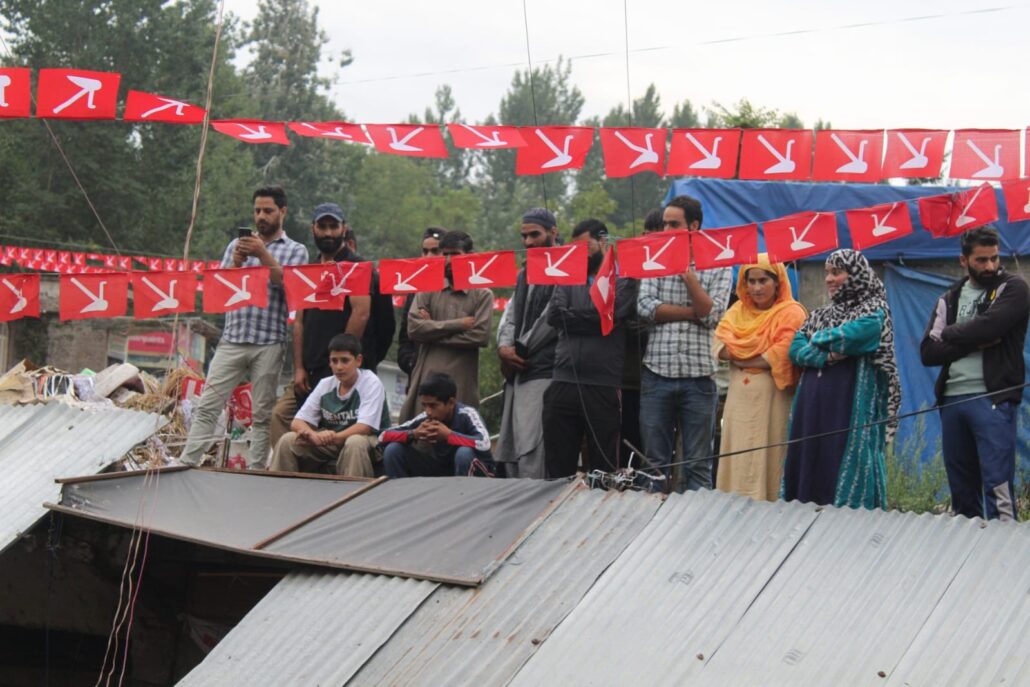
Shoaib Mir, holding a flag emblazoned with Sheikh Abdullah’s image, participates in a rally of the Jammu Kashmir National Conference (NC) in Anantnag district. “I’ve never supported any political party before, but this time, it’s crucial for us to engage in the electoral process,” Shoaib said as he snapped selfies with Dr. Bashir Veeri, National Conference candidate for Bijbehara.
Shoaib represents a new wave of Kashmiri youth, many of whom had previously been implicated in anti-national cases but are now showing interest in the electoral process. “We are just too burdened with the rising unemployment, prices and the unchecked drug abuse is worrying. Suicides are growing, crimes are on the rise and we must not play blind to everything, the regional governments have a major role to play,” stated Shoaib, who hails from the Arwani area of Bijbehara that will go to polls on September 18.
The Election Commission of India recently announced a three phased election for the Legislative Assembly in Jammu Kashmir after a hiatus of ten years. Supreme Court of India had during the hearing of Article 370 case ordered the central government to conduct elections before September 30, 2024.
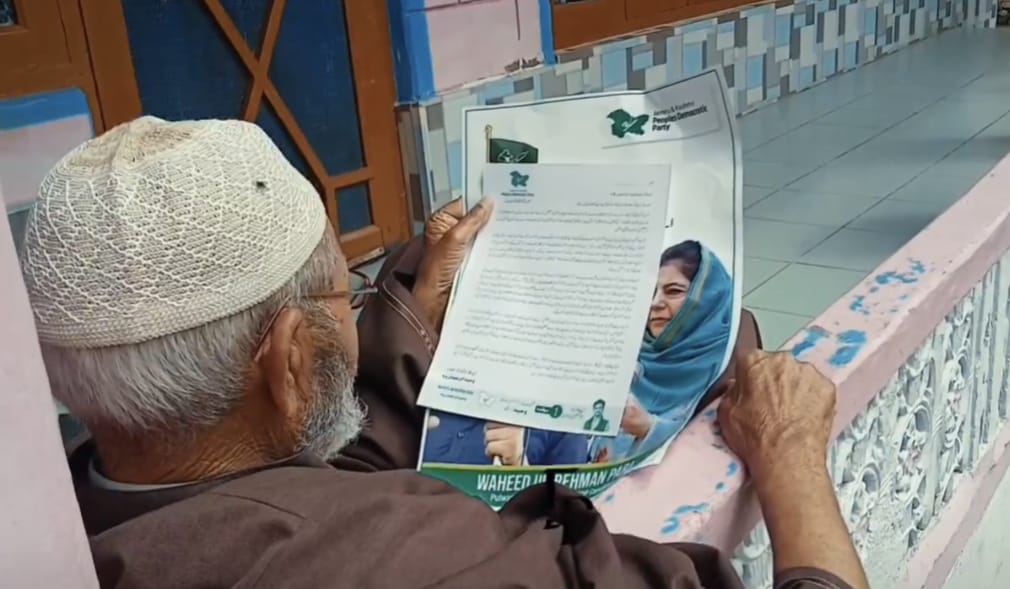
Following the announcement, massive enthusiasm has poured on the streets of Kashmir in preparation for the assembly polls in the region. Though BJP attributes it to the work it has done on the security front, regional parties from the valley state that the election fever is an expression of anger against the Bhartiya Janta Party.
The BJP withdrew support from its coalition partners, the People’s Democratic Party (PDP), in 2018, leading to the dissolution of the assembly. Subsequently, the central government abrogated Articles 370 and 35A, stripping Jammu and Kashmir of its special status. Several political leaders, including Omar Abdullah, Mehbooba Mufti, and Farooq Abdullah, were detained during this period, and the region faced a severe communication blackout.
Amid these developments, residents of the region have begun voicing their concerns. “It feels like we are nearing the end of a long, dark night. Everyone knows that the Kashmir valley was gripped by a deafening silence. People didn’t even speak about their basic issues, but now, with the announcement of elections, that silence seems to be finally breaking,” said Shoaib.
Shoaib hails from the Arwani belt in South Kashmir’s Bijbehara, an area that has been a significant hotbed of militancy. After the killing of Burhan Wani, more than two dozen youth from this region joined militant ranks. “This area has always been a hub of militancy.
Though Jamat-e-Islami is not the majority here, they have wielded considerable power, often preventing others from entering these villages in the Arwani belt. For the first time in over 30 years, the National Conference is holding a meeting in this area,” said Manzoor Ahmed, an elderly resident of Arwani.
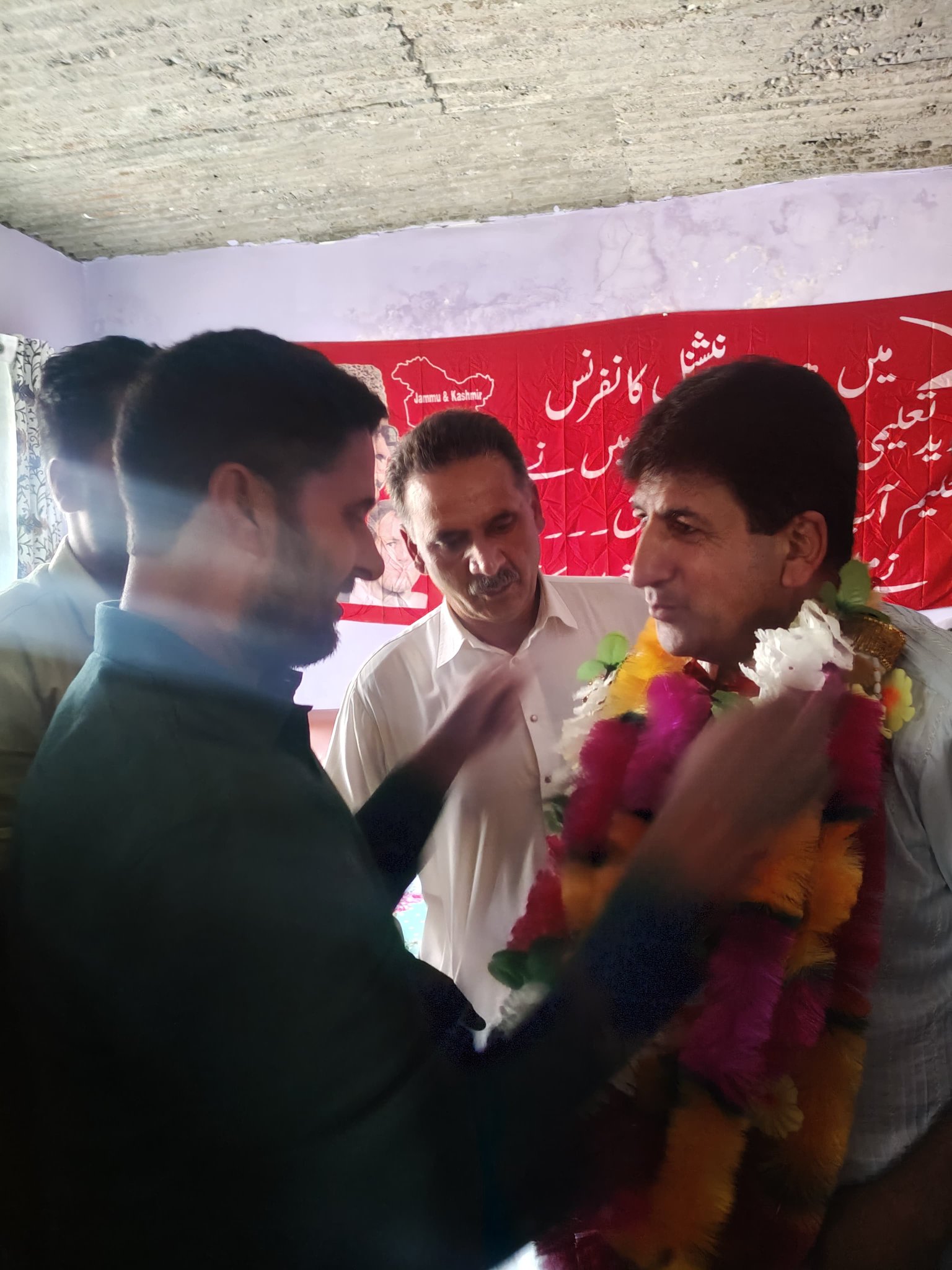
The Arwani belt in south Kashmir’s Bijbehara, historically a hotbed of militancy, is witnessing a shift as the National Conference holds its first meeting in the area in over three decades.
This change reflects a broader political awakening in the region, where power dynamics once dominated by groups like Jamat-e-Islami are now giving way to renewed political engagement. Manzoor Ahmed, a local resident, noted how the area, which saw over two dozen youth join militancy after Burhan Wani’s killing in 2016, is now opening up to new political voices.
Jamat-e-Islami has entered the election fray, fielding four candidates in south Kashmir and supporting an independent in the Zainapora seat in Shopian. However, these candidates are unlikely to make an impact, as many voters believe the party is being used to divide Kashmir’s mandate.
This resurgence in political activity is not isolated. Abdul Hamid, a 72-year-old voter from Zainapora Shopian, is casting his vote for the first time since the contentious 1987 elections. “Back then, we voted out of conviction; this time, it’s a necessity,” Amin remarked.
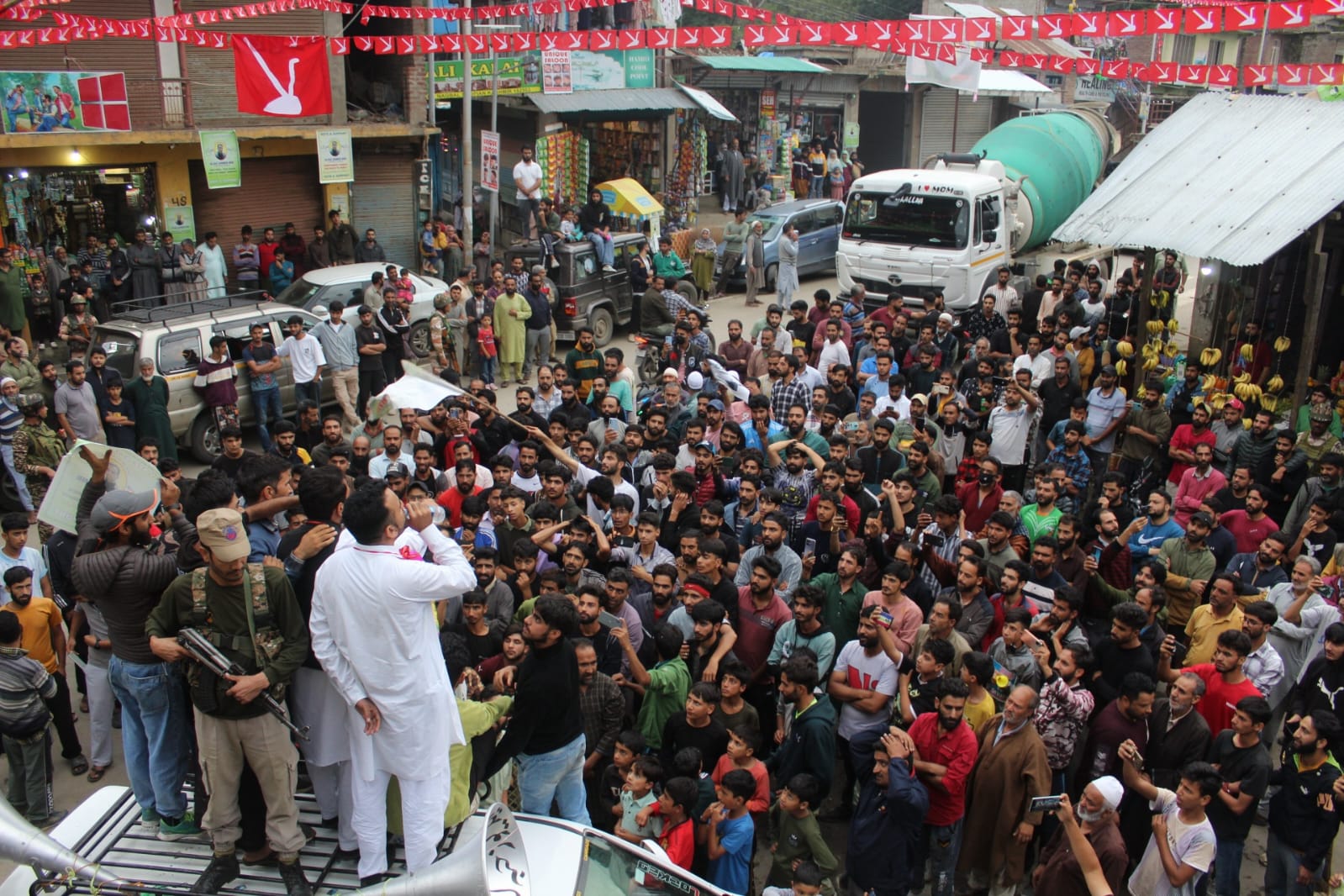
The 1987 elections were a turning point in Kashmir, marked by electoral manipulation and violence that led to widespread disillusionment and fueled the rise of militancy. Today, as voters like Amin return to the polls, it signifies a complex blend of necessity and a cautious hope for change in the region.
As the assembly elections return after a decade, the PDP’s Waheed u Rehman Parra is campaigning for the “restoration of dignity, identity, and rights.” Parra, like his party colleague Mehbooba Mufti, is striving to connect with voters in former militancy hotspots, even as the PDP faces internal challenges.
The BJP, which did not field any contestants in the valley’s three parliamentary seats, a first since 1996 has fielded candidates on several seats for the assembly polls. Several seats in the Kashmir valley are expected to see a highly tight contest, while several others will easily go to PDP or NC candidates, two major parties of the region.
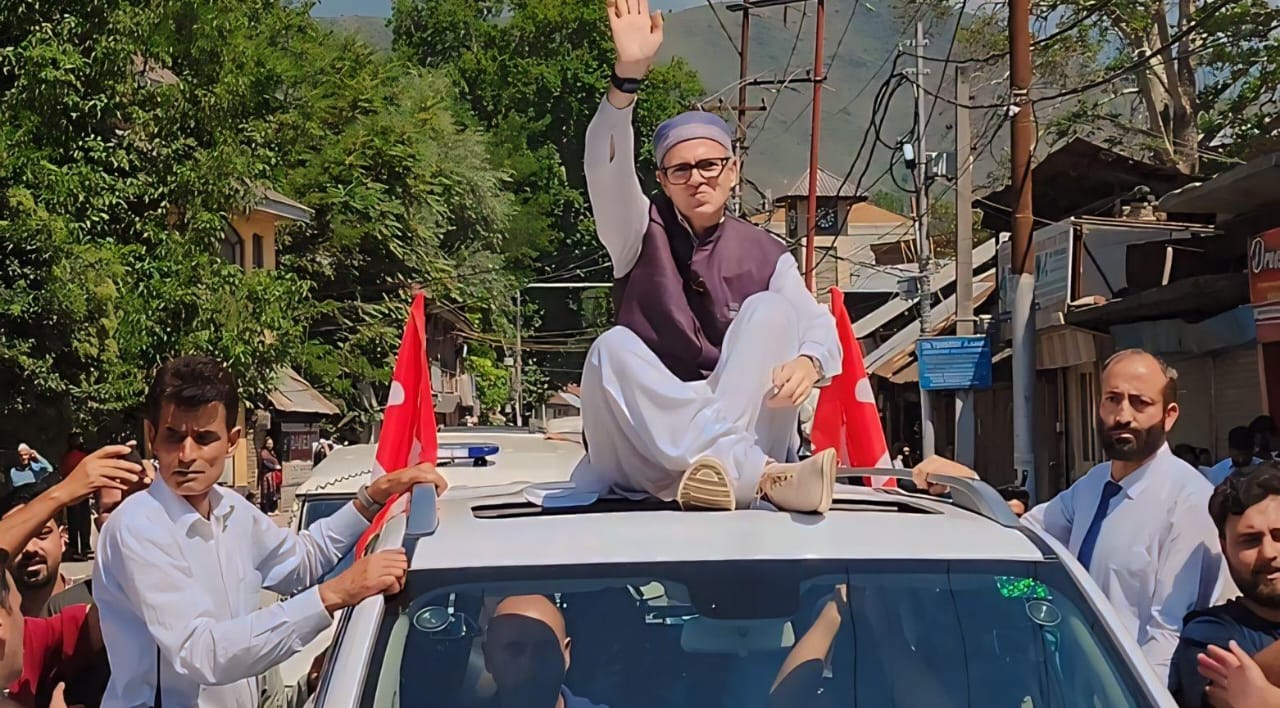
Voter enthusiasm is palpable, with security arrangements in place to ensure a smooth electoral process.
One reason for renewed enthusiasm in Kashmir’s electoral process is the drastic cut in ration supplies, with rice reduced from 15 kilograms per person in 2018 to just 5 kilograms. “This forces us to buy rice from private vendors, adding a significant burden,” said Mohammed Ismail, 61, from Srinagar’s downtown. “On top of that, flat rates for electricity are gone. We now pay per usage, and despite using less, our bills are still high, straining our finances.”
There certainly was a fear factor years ago, but the fear seems to have gone now, says Ismail.
Government forces have conducted flag marches across various districts to instill confidence among voters. With polling scheduled for September 18, 2024, in 24 assembly segments during the first phase and subsequent dates the rest of the 76 seats, security measures are comprehensive.
The ADGP Jammu Zone called for vigilance and proactive measures during the election, stressing the need for free, fair, and peaceful conduct. He emphasized robust coordination between security agencies, intelligence gathering, and timely information sharing to address potential threats.
The deployment of additional forces in sensitive areas was discussed, along with a review of police readiness in manpower, logistics, and resources. High visibility, intensified patrols, and community engagement were also prioritized.
As political rallies energize the region, there’s a growing sense of engagement with the electoral process, signaling a potential shift in Jammu Kashmir’s political landscape. However, skepticism remains, as many locals worry about whether the changes will bring lasting improvement or simply follow past patterns of abandonment.
With the first assembly elections in a decade upon them, the outcome will be pivotal in shaping the future of Jammu Kashmir.




